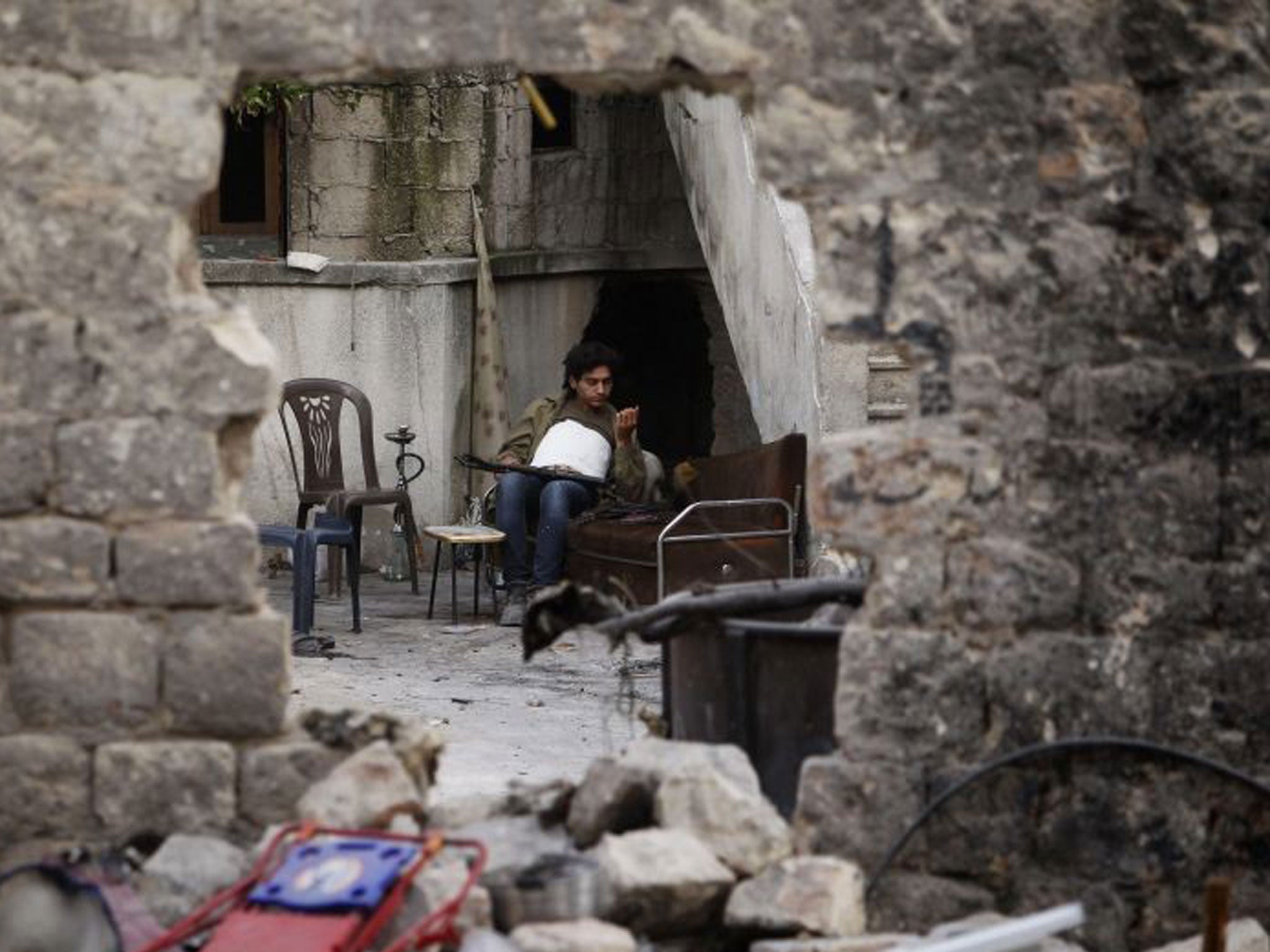Syria: Fears for Aleppo as Hezbollah fighters bolster Assad’s forces

Your support helps us to tell the story
From reproductive rights to climate change to Big Tech, The Independent is on the ground when the story is developing. Whether it's investigating the financials of Elon Musk's pro-Trump PAC or producing our latest documentary, 'The A Word', which shines a light on the American women fighting for reproductive rights, we know how important it is to parse out the facts from the messaging.
At such a critical moment in US history, we need reporters on the ground. Your donation allows us to keep sending journalists to speak to both sides of the story.
The Independent is trusted by Americans across the entire political spectrum. And unlike many other quality news outlets, we choose not to lock Americans out of our reporting and analysis with paywalls. We believe quality journalism should be available to everyone, paid for by those who can afford it.
Your support makes all the difference.Syrian rebels fought back against forces loyal to Bashar al-Assad in Aleppo on Sunday after losing territory to government forces in recent days. Having been driven out of the key town of Qusayr two weeks ago, rebel fighters have been flocking to Aleppo to shore up one of the few remaining opposition strongholds.
Renewed fighting suggest that the city has become the latest target for regime loyalists emboldened by the Lebanese Hezbollah fighters that have swelled their ranks. Rebel leaders and their backers in the West and other Arab countries fear that the strident support of Hezbollah has tipped the two-year conflict in Assad’s favour; a development that has led the West – especially the UK, US and France – to openly contemplate arming the rebels for the first time.
Regime forces have not yet launched a fully-fledged assault on Aleppo, but reports in newspapers loyal to President Assad have suggested that the army sees the city as its next target. Capturing Aleppo would also allow the army to cut off major supply lines from Turkey to rebel strongholds in the north.
Activists in the region have told the Reuters news agency that opposition forces, including growing numbers of radicalised Islamists, have been mounting counter-attacks on Hezbollah-backed troops and militiamen recruited from Shia enclaves near Aleppo, a mostly Sunni city some 20 miles from the border with Turkey. The violence is also spilling over into Lebanon, where four Shia men were yesterday killed in an ambush in the Bekaa Valley, a region where families loyal to President Assad live side-by-side with those who support the opposition.
The UN High Commissioner for Human Rights, Navi Pillay, said last week she feared that the bloodshed in Qusayr would be repeated in Aleppo and undermine international efforts to push for an end to more than two years of civil war. The UN reported last week that some 93,000 people have now been killed in the conflict while more than a million have been displaced.
The feeling that the pro-Assad forces may be gaining the upper hand has led to a flurry of diplomatic activity in the West and the Arab world, focused on arming the rebels. Jordan’s King Abdullah told graduating military cadets in Amman yesterday that they must be ready to fend off any threats from Syria. More than half a million refugees have already crossed the Syrian border into Jordan.
For the West, Jordan is becoming an increasingly important fulcrum in the regional response to the Syrian conflict. It is hosting a large-scale military exercise involving thousands of US troops, and media reports yesterday suggested that British soldiers could also be sent to Jordan.
The US has also agreed to install Patriot missile batteries along Jordan’s 235-mile border with Syria and is allowing a squadron of up to 24 F-16 fighter jets to remain after the exercises. Hours earlier Egypt’s President Mohamed Morsi announced that Cairo would cut all diplomatic ties with Syria and withdraw its diplomats in Damascus.
Join our commenting forum
Join thought-provoking conversations, follow other Independent readers and see their replies
Comments